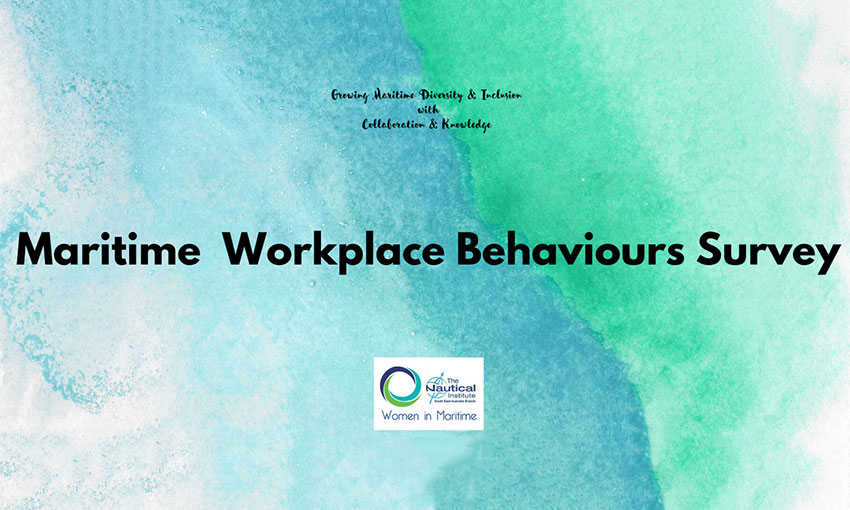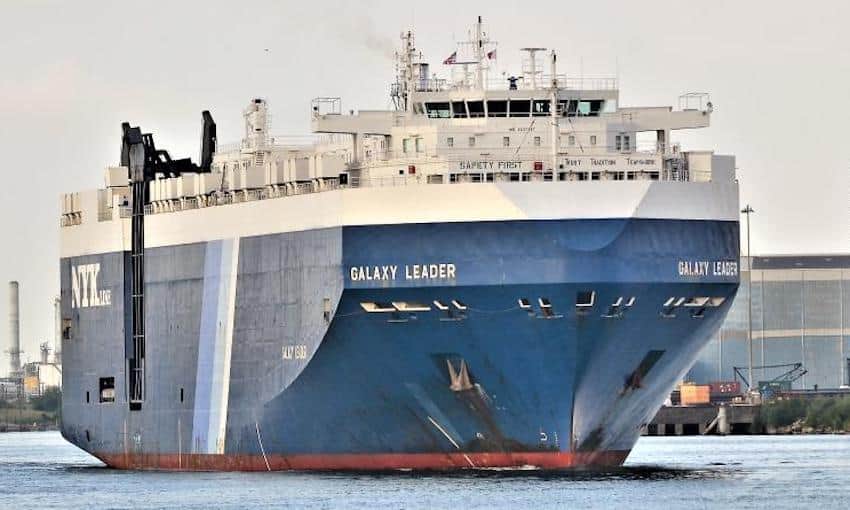THE Nautical Institute South East Australia Branch Women in Maritime Committee has developed a survey with the aim to identify the behaviours that are no longer acceptable in different maritime workplaces around the globe, both at sea and ashore, and then work on initiatives to provide further education and actions to make necessary improvements in maritime workplaces where it is needed.
Below is a message about the survey from the NI SE Australia Branch Women in Maritime Committee.
We are delighted to have seen much commitment and progress in normalising women’s participation in maritime over the past few years, yet it is evident that there is still some way to go until women’s participation is considered truly normal, and likely longer for other marginalised groups.
This hits home a little more when speaking with younger men and women entering the maritime sector, and hearing about their experiences, as it is apparent that many long-standing invisible barriers continue to exist in our workplace cultures. We believe there to be a link between workplace behaviours, culture, and this slow rate of change.
Many times, people especially trainees, or those in junior roles have tolerated, accepted, and sometimes inadvertently been complacent in less than desirable workplace behaviours just so they could fit in and be accepted. These behaviours often become less frequent the more experienced or senior people became, or perhaps people are just thicker skinned.
We have designed a survey to collate information on the everyday behaviours that are often experienced in our maritime workplaces. The focus is on those behaviours where people who are a little different to the stereotype / norm in their workplace may end up standing out, and feeling awkward, frustrated, embarrassed and or isolated. A good example is the use of swearing or offensive language in the workplace, it is often not the swear word that offends, it is the constant apologising for swearing that makes a person feel consciously different to everyone else, resulting in feelings of awkwardness, embarrassment, frustration. Sometimes people even amend their own behaviour to swear more so that could be seen to fit in and be accepted. We are interested through this survey on your views as to how these types of behaviours can be eliminated or improved so that we develop a more modern and inclusive maritime industry.
This issue is not for women, or other minority groups alone to address or improve within their maritime workplace, it is an issue for all people leading, managing, and working in the maritime sectors around the world. We must work together, to identify and understand the barriers that continue to exist in our different maritime workplaces and then implement appropriate measures to remove them. Maritime workplaces around the world, all have common yet unique challenges for providing specific targeted education, solutions and actions that will not only improve workplace diversity and inclusion but importantly our workplace culture.
By completing this survey participants will help us identify what are the top five (5) most frustrating, reoccurring behaviours in a particular maritime workplace that are acting barriers to greater inclusion. The intention is to then take these top five (5) examples, along with the scenarios, context, feedback, and ideas provided and with the assistance of organisational behaviour experts produce interactive education strategies and a framework specific to different maritime workplace environments.
We believe if changing just one unwanted behaviour in our maritime workplaces, can make a different experience for one younger woman, or other person seeking to fit in, in their maritime career journey, then we will have achieved what we set out to with this survey.
The survey is anonymous and will take individuals between 10 and 20 minutes to complete. We encourage you to share this with your maritime network, so that all maritime workers can have input into this issue.
The survey closes on 30 September.
You can complete the survey here: https://www.surveymonkey.com/r/maritimeworkplacebehaviours





